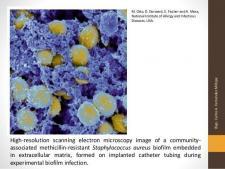Dragon Blood Being Tested as an Alternative to Conventional Antibiotics
Scientists from the George Mason University in Virginia have developed a new peptide that can heal infected wounds in laboratory mice. The scientists are hopeful that the new compound will eventually be used as an antibiotic to treat wounds caused by antibiotic resistant organisms (AROs) in humans. The inspiration for the new drug comes from an unlikely source- the Komodo dragon.

It’s been long known that the bite of Komodo dragons is deadly. This is due to the venom injected by the dragon when it bites its prey, as well as the large number of bacteria found in the mouths of these giant lizards, which causes sepsis and eventual death. The scientists wondered why the presence of large numbers of bacteria did not cause illness in the dragons themselves, which would seem to indicate that the Komodo dragons are resistant to these bacteria. If the dragons were resistant, it might be possible to isolate the factor that enabled this resistance, and this is exactly what the scientists were able to achieve.
Isolating a specific peptide from the blood of the dragons, the scientists were able to create a synthetic version of the peptide, which they have called DRGN-1. They then tested DRGN-1 against two specific types of bacteria involved in the development of biofilms. The results? The synthetic peptide was effective in treating the wounds of mice that were infected with bacteria that formed a biofilm. The peptide not only was able to disrupt the biofilm, but was also able to permeate the membrane of the bacteria.
The scientists are hopeful that DRGN-1 can be developed into a new antibiotic, specifically into a topical antimicrobial agent that could be used alone or in combination with other drugs. This is important because there is currently a dearth of new antibiotics coming on the market, and the antibiotics we now have available are becoming increasingly resistant. This means that one day in the nearby future people may die from infections that are common and were once easily treated. Biofilms are another growing concern. Biofilms occur when bacteria clump together and adhere to a surface, forming a film that is difficult to penetrate. Biofilms give rise to increased antimicrobial resistance and are often associated with hospital-acquired infections, especially when they develop on catheters, artificial joints and artificial valves.
Although there is work to be done with DRGN-1 before it can be developed into an antimicrobial agent for use in humans, the peptide is an exciting advance in the ongoing fight against antibiotic-resistant organisms. Hopefully not too far in the future, DRGN-1 will be developed into a new weapon in our arsenal of antibiotics in everyday use against the microorganisms that threaten our existence.
If you enjoyed this blog, visit Woundeducators.com to see our blog collection, featuring articles on a wide variety of wound care and wound care certification topics.
Source:
Dragon blood drug heals infected wounds and could be used to create new antibiotic. Newsweek. April 2017. http://www.newsweek.com/antibiotic-resistance-komodo-dragon-blood-biofilms-582217

Very informative and clearly explained information about biofilms, I love when learning is clear and exciting! Thanks🤗